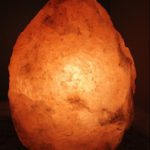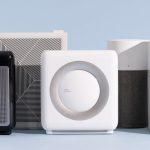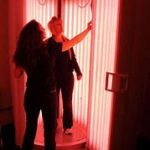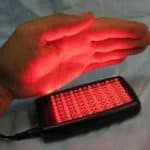Last Updated on 12 months by Francis
Negative ions in air purifiers are ions that carry a negative charge and are produced by air purifiers to promote cleaner and fresher air in homes, offices, and other indoor spaces. These ions are thought to attract and neutralize harmful particles, allergens, and bacteria, thereby reducing indoor air pollution and improving air quality. In this article, we will explore the role of negative ions in air purifiers and their potential benefits for human health and wellness.
Contents
Understanding Negative Ions
To understand what negative ions do in an air purifier, we first need to understand what negative ions are. Negative ions are molecules that have gained an extra electron, giving them a negative charge. They are present in nature, especially near waterfalls, oceans, and in forests. Negative ions are believed to have a positive impact on our health, and that is why many air purifiers use them. But what do they do exactly?
How Negative Ions Work
Negative ions work by attaching themselves to pollutants and other harmful particles in the air. Once attached, the negative ions make these particles heavier and cause them to fall to the ground or stick to surfaces. This process is known as ionization. In an air purifier, negative ions are released into the air, where they attach themselves to pollutants and allergens, making them easier to filter out.
Benefits of Negative Ions
Negative ions have been shown to have several benefits on our health. For example, they can improve mood, reduce stress, and boost energy levels. Negative ions can also help improve the quality of the air we breathe by removing pollutants, allergens, and other harmful particles. This can be especially beneficial for people who suffer from allergies or respiratory problems.
How Air Purifiers Work
Before we can fully understand what negative ions do in an air purifier, we need to understand how air purifiers work. Air purifiers work by removing pollutants and other harmful particles from the air. They do this using various methods, including filters, UV-C lights, and ionizers.
Negative ions in air purifiers attach themselves to pollutants and other harmful particles, making them heavier and causing them to fall to the ground or stick to surfaces. They can help improve the quality of the air we breathe by removing pollutants, allergens, and other harmful particles, and can have a positive impact on our health by improving mood, reducing stress, and boosting energy levels. However, ionizer air purifiers can produce ozone, which can be harmful to our health in high concentrations.
Filter-Based Air Purifiers
Filter-based air purifiers are the most common type of air purifier. They work by using a filter to capture pollutants and other harmful particles. The filter traps these particles, preventing them from entering the air we breathe. Some air purifiers use multiple filters to capture different types of particles, such as HEPA filters, activated carbon filters, and pre-filters.
UV-C Air Purifiers
UV-C air purifiers use ultraviolet light to kill bacteria, viruses, and other harmful particles. When air passes through the purifier, it is exposed to UV-C light, which damages the DNA of any harmful particles present in the air. This makes them unable to reproduce and renders them harmless.
Ionizer Air Purifiers
Ionizer air purifiers work by releasing negative ions into the air. These negative ions attach themselves to pollutants and other harmful particles, making them heavier and causing them to fall to the ground or stick to surfaces. Ionizer air purifiers do not use filters, making them low maintenance and cost-effective.
The Role of Negative Ions in Air Purifiers
Now that we understand how air purifiers work, we can look at the role of negative ions in air purifiers. Negative ions are often used in air purifiers as an additional method of removing pollutants and other harmful particles from the air.
Benefits of Negative Ions in Air Purifiers
Negative ions in air purifiers can help improve the quality of the air we breathe by removing pollutants, allergens, and other harmful particles. They can also have a positive impact on our health by improving mood, reducing stress, and boosting energy levels. Negative ions can be especially beneficial for people who suffer from allergies or respiratory problems.
Drawbacks of Negative Ions in Air Purifiers
While negative ions can have many benefits, they can also have some drawbacks. For example, ionizer air purifiers can produce ozone as a byproduct of the ionization process. Ozone can be harmful to our health, especially in high concentrations. Some air purifiers are designed to minimize ozone production, but it is still something to be aware of when using an ionizer air purifier.
FAQs: What do negative ions do in an air purifier?
What are negative ions?
Negative ions are molecules or atoms that have gained one or more electrons and have a negative charge. They are present in the air around us and can be found near areas such as waterfalls, mountains, and beaches. Negative ions are also produced by electrical devices such as air purifiers.
What do negative ions do in an air purifier?
When an air purifier emits negative ions, they attach themselves to pollutants and allergens in the air, making them heavier and causing them to fall out of the air. This process is called ionization. The negatively charged ions can also attract positively charged particles, such as dust and pet dander, to form larger particles that can be easily removed from the air.
Does an air purifier with negative ions clean the air better?
Air purifiers that use negative ions can be effective in improving the air quality in your home or office. By removing pollutants and allergens from the air, they can help reduce the risk of respiratory problems, allergies, and other health concerns. However, negative ion air purifiers should not be relied on as the sole means of air cleaning. A combination of air purifiers, such as HEPA filters, and good air circulation is necessary for effective air cleaning.
Are negative ions safe for human health?
While negative ions can have positive effects on air quality, there is some controversy about their effects on human health. Some studies have suggested that exposure to high levels of negative ions can lead to health problems, such as headaches and respiratory irritation. However, these studies are limited and more research in this area is needed. In general, low levels of negative ions are considered safe for human health. It is important to follow manufacturer instructions and use air purifiers in a well-ventilated area.







